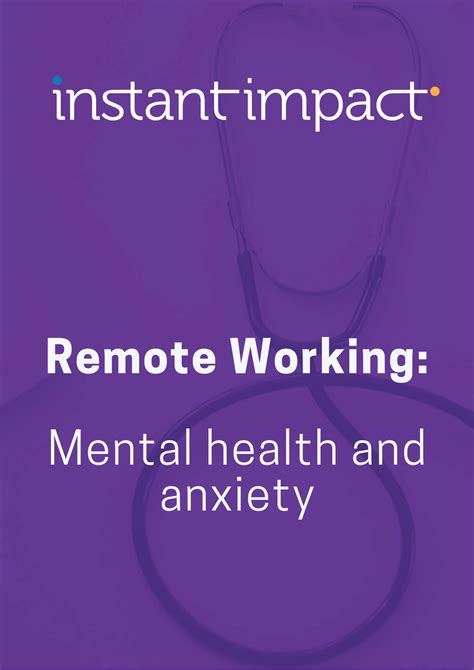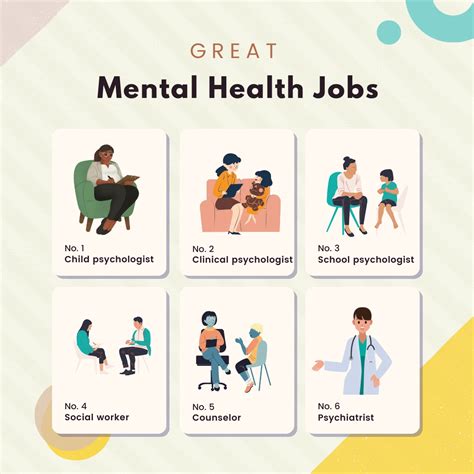Intro
Explore remote behavioral health jobs and unlock a fulfilling career path. Discover opportunities in teletherapy, online counseling, and mental health coaching, and learn about the skills and qualifications required to succeed. Find out how to transition to a remote role and advance your career in this growing field, improving mental health services and patient outcomes.
The COVID-19 pandemic has accelerated the shift towards remote work, and the healthcare industry is no exception. Remote behavioral health jobs have become increasingly popular, offering a unique opportunity for mental health professionals to work with patients from the comfort of their own homes. In this article, we will explore the opportunities and career paths available in remote behavioral health jobs.

The demand for remote behavioral health services has increased significantly in recent years, driven by the growing need for mental health support and the convenience of online platforms. This shift has created new opportunities for mental health professionals to work remotely, providing services such as counseling, therapy, and coaching to patients across the country.
Benefits of Remote Behavioral Health Jobs
Remote behavioral health jobs offer a range of benefits, including:
- Flexibility: Remote work allows mental health professionals to work from anywhere, at any time, providing greater flexibility and work-life balance.
- Increased accessibility: Remote behavioral health services can reach patients who may not have access to traditional in-person services, such as those living in rural areas or with mobility issues.
- Cost-effectiveness: Remote services can reduce costs associated with travel, office space, and equipment.
- Broader patient reach: Remote services can reach a wider range of patients, including those who may not have sought help otherwise.
Types of Remote Behavioral Health Jobs
There are several types of remote behavioral health jobs available, including:
- Licensed therapist: Licensed therapists provide counseling and therapy services to patients via phone, video, or messaging platforms.
- Counselor: Counselors work with patients to identify and address mental health issues, providing support and guidance via remote platforms.
- Coach: Coaches work with patients to set and achieve goals, providing support and guidance via remote platforms.
- Psychiatrist: Psychiatrists provide medical evaluations and treatment plans for patients via remote platforms.
Requirements for Remote Behavioral Health Jobs
While the specific requirements for remote behavioral health jobs may vary, most employers require:
- Licensure: A valid license to practice as a mental health professional in the state where the patient is located.
- Education: A master's or doctoral degree in a relevant field, such as psychology, social work, or counseling.
- Experience: Relevant experience working with patients, either in-person or remotely.
- Technical skills: Proficiency in remote communication platforms, such as video conferencing software and electronic health records.

Popular Remote Behavioral Health Job Platforms
Several platforms offer remote behavioral health job opportunities, including:
- BetterHelp: A popular online counseling platform that connects licensed therapists with patients.
- Talkspace: A online therapy platform that offers remote counseling services to patients.
- MDLive: A telemedicine platform that offers remote medical and mental health services to patients.
- Amwell: A telemedicine platform that offers remote medical and mental health services to patients.
How to Get Started in Remote Behavioral Health Jobs
Getting started in remote behavioral health jobs requires several steps, including:
- Obtaining licensure: Ensuring that you have a valid license to practice as a mental health professional in the state where the patient is located.
- Gaining experience: Building relevant experience working with patients, either in-person or remotely.
- Developing technical skills: Proficiency in remote communication platforms, such as video conferencing software and electronic health records.
- Creating a professional online presence: Building a professional online presence, including a website and social media profiles.

Challenges and Limitations of Remote Behavioral Health Jobs
While remote behavioral health jobs offer many benefits, there are also challenges and limitations to consider, including:
- Technical issues: Technical issues, such as connectivity problems or poor video quality, can impact the quality of care.
- Limited nonverbal cues: Remote communication can limit nonverbal cues, such as body language and tone of voice.
- Patient engagement: Patient engagement and motivation can be challenging in remote settings.
- Licensure and regulation: Licensure and regulation requirements can vary by state, creating challenges for mental health professionals working remotely.
Future of Remote Behavioral Health Jobs
The future of remote behavioral health jobs looks promising, with increasing demand for online mental health services and advances in technology. As the healthcare industry continues to evolve, remote behavioral health jobs are likely to play an increasingly important role in providing mental health support to patients.

Conclusion
Remote behavioral health jobs offer a unique opportunity for mental health professionals to work with patients from the comfort of their own homes. With the increasing demand for online mental health services and advances in technology, the future of remote behavioral health jobs looks promising. By understanding the benefits, requirements, and challenges of remote behavioral health jobs, mental health professionals can position themselves for success in this growing field.
We invite you to share your thoughts and experiences with remote behavioral health jobs in the comments below. Have you worked in a remote behavioral health job? What challenges and benefits have you experienced? Share your story with us!
What are the benefits of remote behavioral health jobs?
+The benefits of remote behavioral health jobs include flexibility, increased accessibility, cost-effectiveness, and broader patient reach.
What are the requirements for remote behavioral health jobs?
+The requirements for remote behavioral health jobs include licensure, education, experience, and technical skills.
How do I get started in remote behavioral health jobs?
+To get started in remote behavioral health jobs, you need to obtain licensure, gain experience, develop technical skills, and create a professional online presence.
